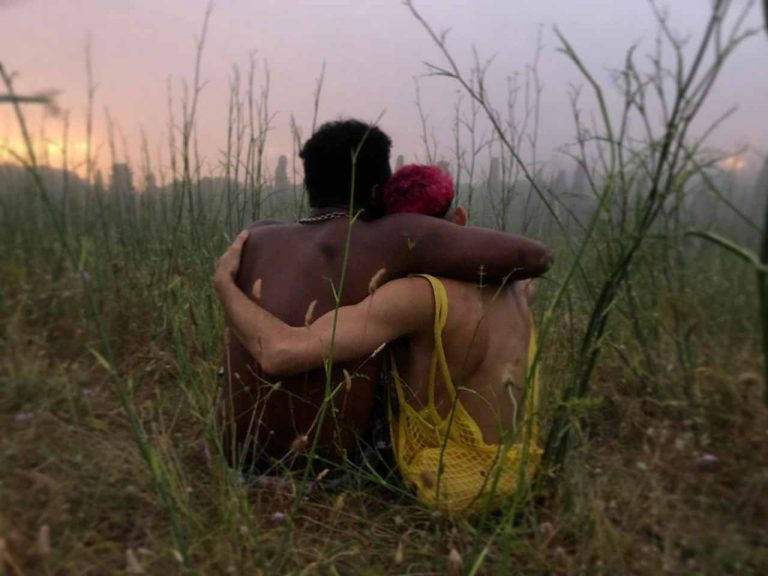Poland’s LGBTQ community is under attack, here is how you can help
After adopting a slew of anti-queer policies and instituting “LGBT free zones” across the country, Polish authorities are now escalating their attack on the LGBTQ community by staging police crackdowns on activists protesting their swelling repression. Under this climate of government-sanctioned hate and police brutality, violent and arbitrary arrests of queer activists and their portrayal as enemies of society deserving the full wrath of the law is becoming the new norm in Poland.
In late 2019, Poland has sent shock waves across the world when over 100 local governments in its territory adopted resolutions declaring themselves “LGBT free zones,” in which promotion of queer ‘ideology’ and advocacy for LGBTQ rights are prohibited. In response, the European Union Parliament issued a stark condemnation of these local governments, with some lawmakers comparing the resolutions to “Jew free” zones established in Poland during World War II.
Throughout 2020, pressure was exerted intermittently by some EU institutions and public figures. The European Commission had sent a letter in early June to a number of administrative provinces in Poland, demanding an explanation for the resolutions and reminding them that the adoption of discriminatory policies could result in the withholding of funds. The EU has also denied several Polish cities that declared themselves free of queer “ideology” grants for “twinning programmes” with other European cities.
But, despite the growing number of condemnations and looming sanctions, Polish authorities remained undaunted. They persisted with their anti-queer agenda. As indicated in the Atlas of Hate, an interactive map prepared by Polish activists, about a third of Poland (a territory larger than the size of Hungary) is currently within the “LGBT free zone.”
These policies are the direct result of a multi-year anti-queer campaign waged by the governing far right Law and Justice Party (PiS) in Poland, which portrays LGBTQ people as a menace to traditional family values and regards the promotion of their rights as an affront on religious freedom.
Emboldened by the nation’s president and top politicians—public figures and leaders, both religious and secular, have been openly condemning the LGBTQ community, and homophobic and transphobic rhetoric began to inundate Poland’s national media landscape. This has sparked a wave of violent attacks, threats, and abuse of queer people across Poland.
Polish queer activists refused to stay silent and have embarked on a persistent and courageous campaign of their own—to restore their dignity, ensure their safety, and demand that the government protect their liberties and rights. The government’s response to this has been an unbridled assault by police officers and legal authorities on queer activists.
On 14 July, activist Margot Szutowicz, member of the Stop Bzdurom (Stop Nonsense) campaign, had been arrested for defacing a truck that used loudspeakers to spread anti-queer propaganda. Szutowicz was then arrested again on 3 August, along with several other activists, this time for hanging Pride flags on monuments across Warsaw. Both arrests were conducted violently, with officers calling Szutowicz homophobic slurs. Szutowicz is facing charges of participating in a riot, property damage, and physical assault, for which she could face up to 7 years in jail, and will be placed in a two-month pre-trial detention.
On 7 August, a crowd of queer activists gathered outside the headquarters of the Campaign Against Homophobia [KPH] in Warsaw, where Szutowicz was arrested, and attempted to block the van that carried her away. Activists live-streamed the events on social media as they happened, documenting what devolved into a noxious display of police brutality. “The unmarked vehicle broke through and we chased it down the street, trying to stop it by jumping in front of the car,” shared an activist named Maya on her IG Story. “[I]t was an incredibly dangerous moment with police—in uniforms and plainclothes—violently throwing us off the vehicle, pulling us off the street.” According to ILGA-Europe, an LGBTQ advocacy nonprofit organisation, at least 50 arrests of activists were made that night.
By enshrining in law the oppression and dehumanisation of the LGBTQ community, Poland is violating its obligation as a member state of the European Union to guarantee “respect for human dignity, freedom, democracy, equality, the rule of law and respect for human rights, including the rights of persons belonging to minorities.” By orchestrating virulent crackdowns on activists and sanctioning mass, arbitrary arrests of protesters, the Polish government is exacerbating the global pandemic of police brutality and stifles freedom of speech and assembly. The international community should throw its full support behind the queer community in Poland and demand an immediate end to its oppression.
“7 August’s events in the capital of Poland will forever be remembered by the Polish LGBTQIA movement,” the Campaign Against Homophobia said in a statement. “The sense of pride, power and solidarity that we experienced during yesterday’s riots will remain in our hearts. Cannons have been launched against the rainbow and there is no turning back.”





